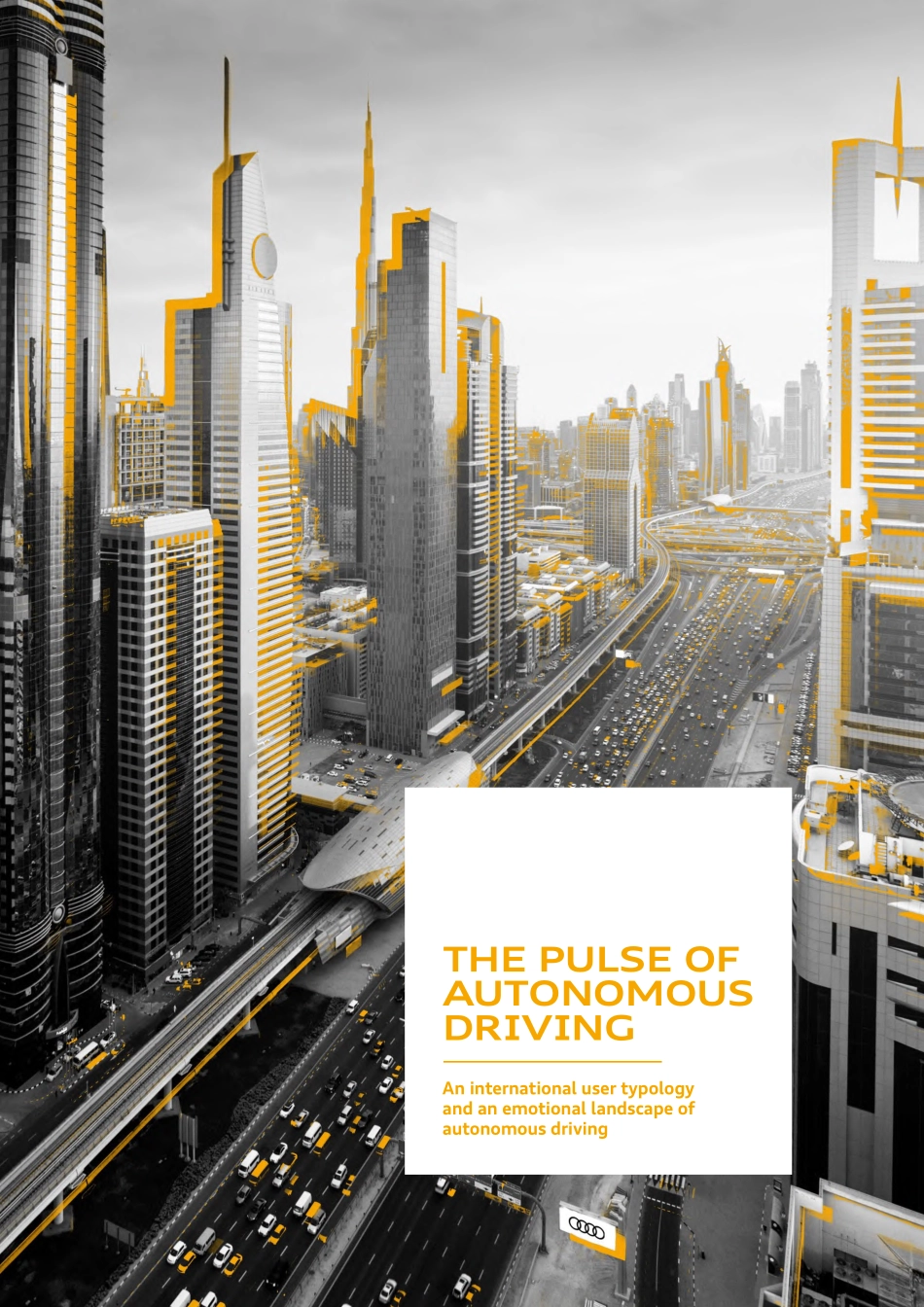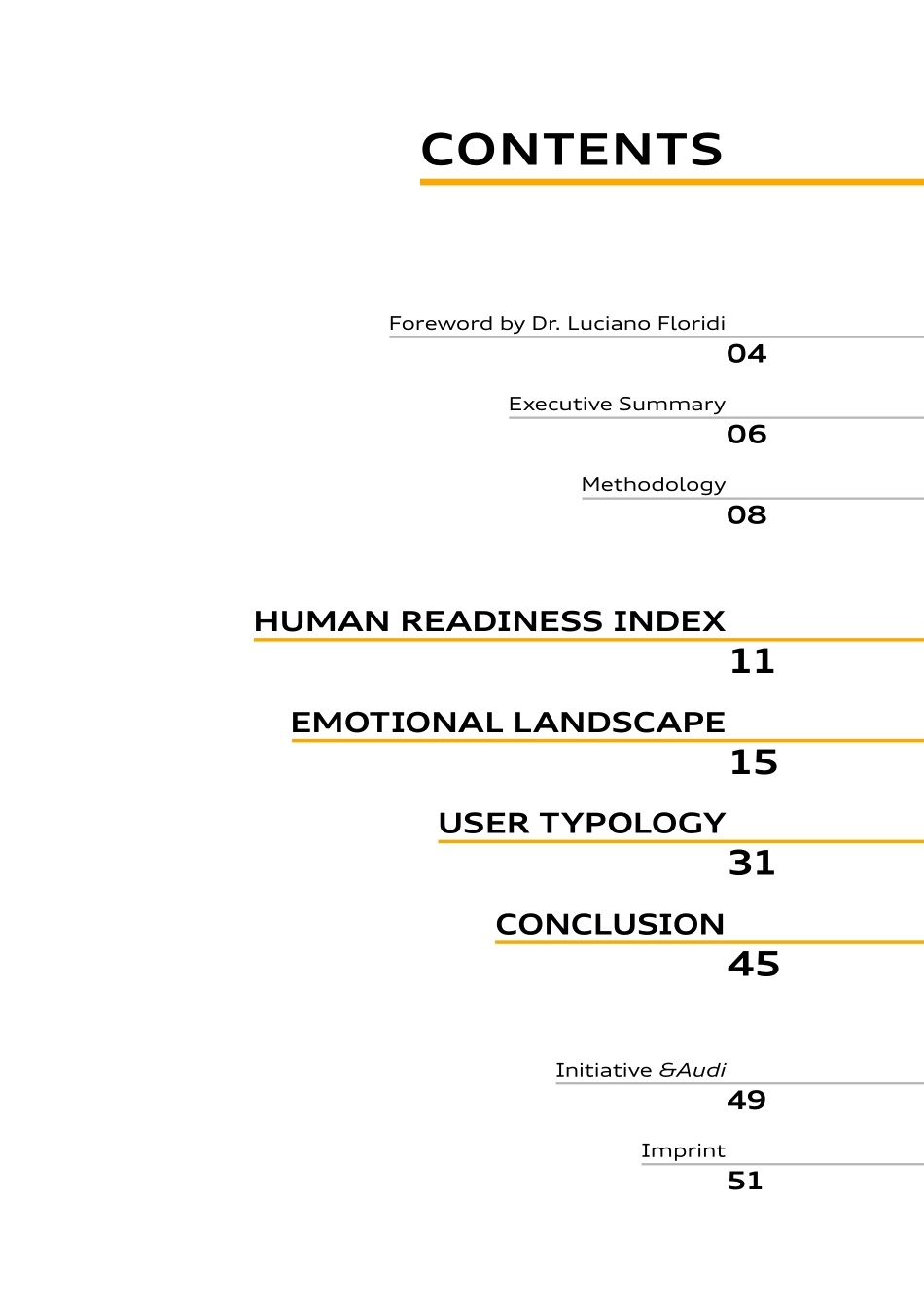THE PULSE OF AUTONOMOUS DRIVINGAn international user typology and an emotional landscape of autonomous drivingCONTENTSForeword by Dr. Luciano Floridi04Executive Summary06Methodology08HUMAN READINESS INDEX11EMOTIONAL LANDSCAPE15USER TYPOLOGY31CONCLUSION4549Imprint51Initiative &AudiFOREWORDMobility is an essential part of life in many socie-ties. Every day, all over the world, cars play key functions (e.g., in transport or leisure) and social roles (e.g., as statements or status symbols). They are part of our history and culture. Any trans-formation of mobility affects the very essence of contemporary societies. And it is hard to imagine a more profound transformation of mobility than autonomous driving. So, understanding attitudes towards its benefits and shortcomings means being able to address societal welfare and indi-vidual wellbeing more successfully. Hence, this study is more than just a welcome addition to our knowledge of the phenomenon; it is a necessary step for any policy- and law-making decision, as well R&D and business strategy, that intends to be proactive and informed in delivering a better world.The survey contains a wealth of information and insights about people’s attitudes to autonomous driving in China, France, Germany, Italy, Japan, South Korea, Spain, United Kingdom, and United States. For example, structuring the responses into 5 typologies of drivers is helpful to unders-tand overall attitudes. Here, I would like to outline two interesting points emerging from the study and draw a general conclusion.Consider the tension between technological novelty and change. The majority of those survey-ed expressed interest (82%) and curiosity (62%) about autonomous driving. However, a majority also raised concerns about loss of control (70%), technically unavoidable residual risks (66%), and the lack of a legal framework (65%). This is not as odd as it seems. Appreciating a novelty requires only an open mind but involves no actual risks or costs. Embracing a change implies a commitment that raises concerns about risks and costs (only 28% of people are willing to pay more for auto-nomous vehicles). Autonomous driving is both a realistic novelty and an unprecedented change. To translate high levels of interest and curiosity into low levels of concerns one needs to provide better technology, more safety, and robust ethical and legal frameworks. Thus, high expectations about these latter variables are understandable.04The Future of Autonomous Driving may be VarietyFOREWORD BY DR. LUCIANO FLORIDIDr. Luciano Floridi, Oxford Internet Institute, Professor of Philosophy and Ethics of Information and Director of the Digital Ethics Lab, University of Oxford, and member of the scientific network of the initiative &AudiFOREWORDConsider next that only a minority (8%) “feel able to explain the subject”. This may seem worrying-ly low and even cast doubts o...


